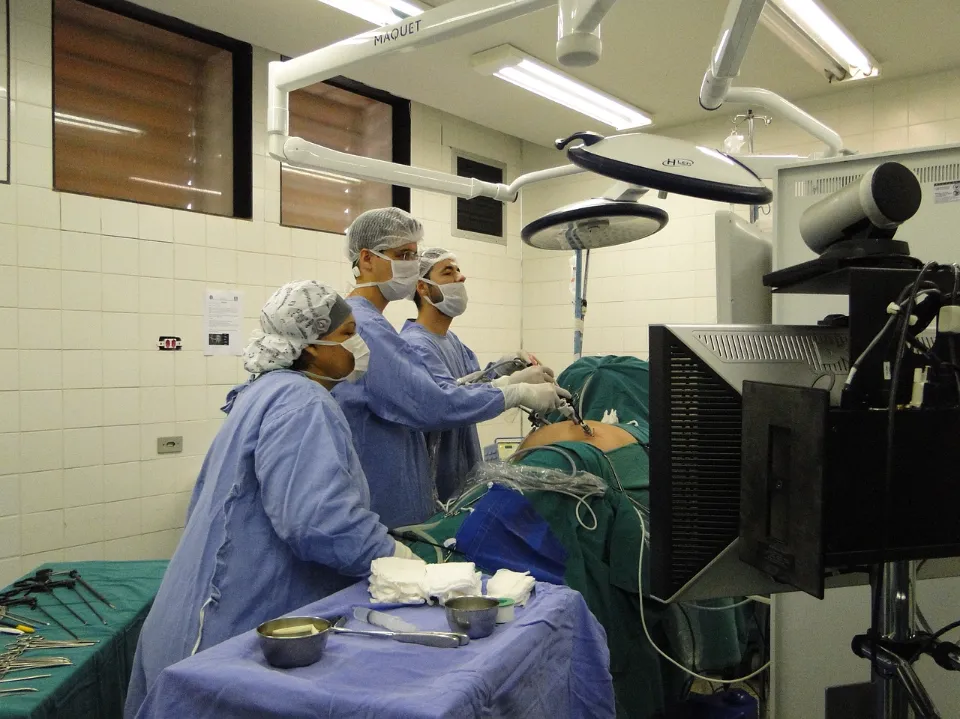Urinary retention, or the total inability to urinate, is always a medical emergency. Urinary retention following surgery can be brought on by the kind of surgery, the anesthetic, and the post-operative medication. Most of the time, it gets better in a few weeks.
To prevent harm to your bladder and kidneys, you should seek treatment right away if you are unable to urinate at all. Likewise, if you are able to urinate but still feel like you have urine in your bladder, consult your healthcare provider.
This article will provide you with advice on how to move around and make an effort to activate your bladder following surgery.
What is the Difficulty of Urinating After Surgery?
Postoperative urinary retention (POUR), which causes difficulty urinating after surgery, is a medical condition. POUR is the inability to voluntarily urinate after surgery despite the bladder being full. When normal bladder function is hampered by surgery, it happens. Nervous systems that are active and passive are both involved in bladder control. There are also two phases of bladder control—filling and voiding.
Smooth muscles don’t tense up when the bladder is filling. When the bladder is being filled, the powerful sphincter muscles contract to keep the urine inside. You become aware of the need to urinate once nerve signals from your bladder alert your brain to its fullness. The part you can control voluntarily is voiding, or releasing urine from the bladder. You control when you will urinate. Once you are ready, the smooth muscles around the bladder contract to squeeze it and you relax the sphincter muscles to let urine flow. The ability to voluntarily relax the sphincter muscle or the function of the smooth muscles can all be affected by surgery.
Urination problems after surgery are very typical. Up to 70% of surgical patients will experience it to some extent. Men, people over the age of 50, and those with specific medical conditions, such as diabetes, are at higher risk. Additionally, it occurs more frequently with certain surgical procedures, such as pelvic surgery, and with anesthesia drugs. Postoperative urinary retention may also be influenced by the length of anesthesia.

Different Forms of Urinary Retention
If you can’t wake up your bladder, you may have acute (sudden and serious) or chronic (ongoing) retention. Following surgery, either kind of retention is possible.
Acute Retention
Signs of acute retention include:
- Being unable to pee, even when you feel you need to
- A noticeably full bladder (in thin people, this may look like abdominal swelling)
- Discomfort or pain in the bladder region
- Lower abdominal pain, particularly below the belly button2
These signs and symptoms are not common in all surgical patients. It’s crucial to pay attention to whether and how often you need to urinate if you’ve had surgery.
Chronic Retention
Contrary to acute retention, which means you are completely unable to empty your bladder, chronic retention refers to additional issues you might experience. Symptoms of chronic retention include:
- Trouble starting to pee
- A weak or stuttering urine stream
- A feeling that your bladder is not completely emptied
A medical emergency is not present with this kind of retention. However, patients who retain urine even after peeing (called post-void residual urin) are at a greater risk of urinary tract infections, which can cause serious complications.
How to Wake Up Your Bladder After Surgery?
Active Activities
After surgery, get up and about. After surgery, the more you move, the more likely you are to urinate. Sit up, stand up, and start walking whenever it’s safe to do so. By moving your bladder into the appropriate position, this assists in stimulating it and causing your body to feel the need to urinate.
Do Not Drink Excessively
To try to urinate, avoid drinking too much fluid. While you need to drink fluids and stay hydrated after surgery, you should not drink a lot of fluids to try and get yourself to urinate. The bladder may become overfilled as a result, which may result in stretching or other issues. Instead, sip water or drink a normal amount for you and let the urges happen naturally.
Water Flow Sound Stimulation
If you are having trouble urinating, try turning on the faucet and letting the water run. Sometimes the sound of running water can help to awaken your brain and bladder, allowing you to urinate. Run a small amount of water over your stomach if the sound does not work.
Try to Urinate
to frequently urinate. It may become difficult to urinate or cause bladder problems to occur if you go four hours or longer without urinating. Try to empty your bladder every two to three hours following surgery.
Take a Hot Shower
Take a warm bath. If you can, take a warm bath. Your brain, body, and bladder can all become more relaxed in the warm bath, which may facilitate urination. It’s acceptable if you find it more convenient to urinate in the bathtub right after surgery. Urinating any way possible is important post-surgery.
- Try using peppermint oil in a diffuser or other aromatherapy device while taking your bath. You might be able to urinate more easily if you smell peppermint oil.
- This may not always be an option after surgery. The medical staff may forbid you from taking a bath if they want you to urinate before leaving the hospital.

Contact Your Doctor
Tell your nurse or doctor if you can’t urinate. After surgery, let your nurse or doctor know if you find it difficult to urinate. They can examine your bladder by touching it to see if there is any pain. They might also do an ultrasound on your bladder. They may insert a catheter into your bladder if they believe you require assistance so that the urine can be drained until you can urinate independently.
Summary
Can’t get your bladder to wake up after surgery? This could be postoperative urinary retention (POUR), a condition characterized by overfilling the bladder, which can cause the bladder muscles to become overstretched. The bladder muscles may suffer as a result. However, it is possible for the damage to be permanent even though it usually isn’t. Infections of the bladder are one of the possible side effects of catheterization. POUR requires time for recovery. Most people will be able to urinate again in 1 to 3 days. When the effects of the surgery and other factors have passed, it will typically stop.
FAQs
How is the Cause of Difficulty Urinating After Surgery Diagnosed?
The postoperative care team will keep an eye on your ability to urinate because urinary retention symptoms are not always apparent. Depending on how much you urinate, you might have a urine collection pan in the toilet. Generally speaking, you shouldn’t go more than 6 to 7 hours without urinating. A physical examination may show a swollen bladder if you are unable to urinate. To view the bladder, the medical staff may occasionally use ultrasound. Both diagnosing and treating POUR can be accomplished by draining the bladder with a catheter and measuring the contents.
What Causes Difficulty Urinating After Surgery?
Urinary retention is more common with the following types of pelvic, abdominal and lower extreme surgery:
- Colon, rectal or anal surgery
- Gynecologic surgery
- Hernia repair
- Knee or hip replacement
- Pelvic surgery
- Spinal surgery



